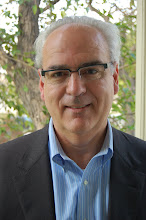S. A. was first admitted to Hillsides on 2/07/06 and was discharged to his grandmother and legal guardian 8/27/08. S. came to Hillsides after multiple suicide attempts resulting in numerous psychiatric hospitalizations. While living here, program staff had to intervene repeatedly to prevent self-harm. Over time, these crisis contacts developed into healthy, secure relationships, and the self-injurious behavior gradually disappeared.
They received family therapy during his entire stay, Therapeutic Behavior Services from Hillsides upon discharge and Wraparound from another agency. (Therapeutic Behavior Services offer intensive one-on-one services to children whose needs go beyond a weekly therapy session. Trained therapeutic behavior specialists work with a child in school, in the community, and in the home, devising an attainable behavioral goal, and then meeting with the child to assist him or her in developing the skills to reach that goal. ) In spite of everything, he was readmitted 12/24/08. We have reinstituted family therapy with a new focus.
REFLECTION
This was a case in which Hillsides and the County agreed on the plan. The one thing that “may” have made a difference would have been if Hillsides provided the Wraparound services since we had the relationship with the client and the family. (Wraparound is a program where the process of creating safe places for a child includes wrapping support services around the child and the entire family to increase the possibility of successful outcomes).
CONCLUSION
1. Family involvement in the treatment process is a key factor.
2. A plan for discharge agreed by all parties, Hillsides, LA DCFS, the child and the family is necessary for a successful transition. (A plan is not going to work if the child or the receiving party is saying they are not ready.)
3. We should consider mandatory supportive services in the home.
4. Once a plan has been agreed upon, there should be some benchmarks set to determine the move-in date.
5. As a general rule, the residential treatment agency should provide Wraparound services to the receiving family where ever possible, since they are the ones who know the child and the family. (This would entail an exception to the Service Provider Areas (SPA) specific structure of the Wraparound program, since most residential treatment centers do not have Wraparound programs in all the SPAs.)
Subscribe to:
Post Comments (Atom)



No comments:
Post a Comment